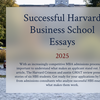IN 1921, alumni and students protested President A. Lawrence Lowell's decision to bar Blacks from Harvard's first-year dorms (Lowell's cynical manner of prohibiting the admission of Blacks to Harvard). They won, and the decision was reversed.
In 1969, Black students staged protests and planned boycotts until the faculty developed an agreeable plan for the formation of an Afro-American Studies Department. They won, and we still have that department.
In 1982, the Third World Coalition at the Law School caused a national uproar over a class on civil rights created and usually taught by Derrick Bell. Since Bell had left the school, it was to be team-taught by a Black and a white professor.
The Black students boycotted the class and held alternate lectures by minority teachers. Before the end of the term, the Law School appointed a minority professor to teach the class for the following year.
In 1989 and 1990, students held many protests about the number of professors in the Afro-Am Department. Last spring the department had only one tenured professor--who was on leave--and no junior faculty at all. The University responded by securing Henry Louis Gates Jr. Now the department has five tenured faculty members, several junior faculty members and visiting scholars.
WITH ISSUES of minority hiring at Harvard, protesting has a solid record. When student groups, alumni and other interested parties make their demands known loud and clear, the University responds (after extreme pressure, after some time and in their own way). Unit it is compelled by such vocal protests and bad press, however, the University usually drags its heels on minority hiring.
At Harvard Law School, the issue of minority hiring is about to explode. A student group is in the Massachusetts Superior Court trying to win legal standing to sue the University. Derrick Bell is calling on Harvard to extend his leave, which he took in order to protest the lack of minority faculty, and is filing discrimination charges with the U.S. Department of Education.
The current protesting tactic is to try to force the Law School to hire a more diverse faculty through legal action. This goes one step beyond marches and sit-ins, although those are happening also.
The legal actions signal that, at Harvard Law School at least, the community is no longer willing to wait for the University to act on its own. This may just be the step that will force Harvard to stop dragging its heels on minority hiring.
STUDENT GROUPS and faculty members such as Derrick Bell have been bashing the faculty minority hiring record for years.
They have a lot to complain about. Out of 64 tenured or tenure-track professors at the Law School, only five are women and six are Black. Last week, the Law School faculty voted to tenure four professors, all of whom are white.
Derrick Bell has been urging the Law School to hire more minorities for over a decade. In April 1990, he took a leave of absence and is refusing to return to HLS until they hire a law professor who is a woman of color.
But in the spring, his allotted two years of leave is over. Bell is planning to file suit for discrimination and take other legal measures. But barring any legal injunctions. Bell has only three options: he can convince Harvard to extend his leave, he can come back or he can resign.
President Neil L. Rudenstine said last week that he will not make any exceptions for Bell. And he shouldn't.
Bell may have felt forced to take a leave of "conscience," and he may think it's the University's fault, but that should not be enough to change this particular University policy. If Harvard starts allowing extra leaves, it will have to grant that privilege to other professors with causes. It will become difficult to draw the line between protesting and convenient association with this school.
Read more in Opinion
Primarily Not For Grads












